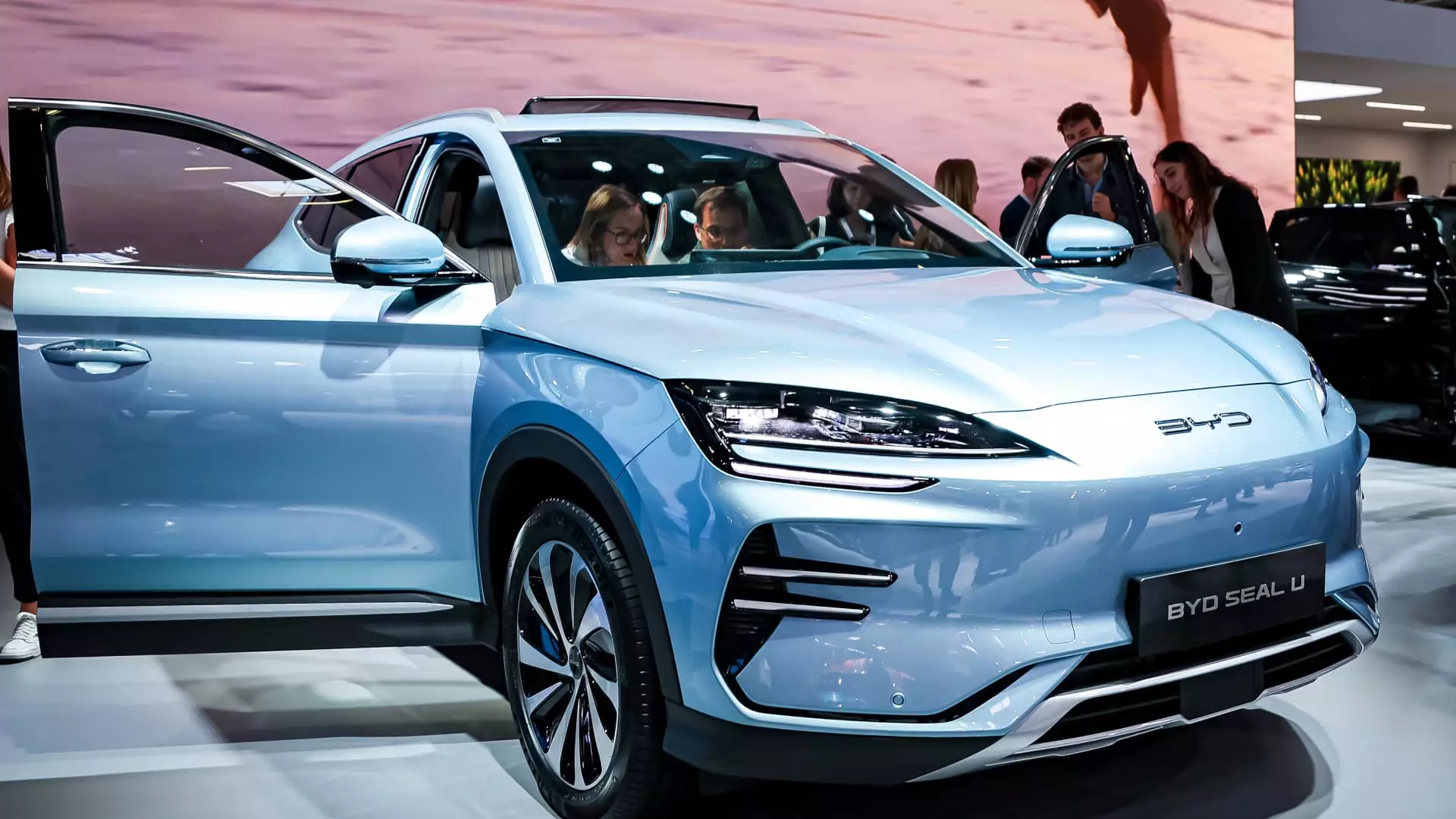Chinese electric vehicle maker BYD is making waves in the EV market, with its battery electric vehicle sales expected to surpass those of Tesla this year. According to a Counterpoint Research report, BYD’s market share in the BEV sector is set to surge, highlighting the dynamic nature of the global EV market. In the second quarter, BYD’s battery EV sales saw a significant increase of nearly 21% year on year, totaling 426,039 units. On the other hand, Tesla experienced a 4.8% drop in deliveries during the same period, with 443,956 vehicles sold.
In terms of total production, BYD outperformed Tesla for the second consecutive year. BYD’s total production in the previous year exceeded 3 million units, consisting of battery-only powered cars and hybrids. On the other hand, Tesla produced 1.84 million cars in the same period. However, when it comes to battery-only passenger cars and hybrids, BYD stood out with 1.6 million battery-only passenger cars and 1.4 million hybrids in production, placing Tesla ahead in terms of BEV production.
The Dominance of China
Counterpoint Research emphasized China’s dominance in the BEV market, with BYD leading the way. The research firm projected that China will maintain more than 50% of the global BEV market share until 2027. Additionally, Chinese BEV sales are anticipated to surpass the combined sales of North America and Europe by 2030. This underlines China’s strong position in the electric vehicle industry and its potential for growth in the coming years.
Despite its success, BYD faces challenges in the form of tariffs imposed by the European Union on Chinese EV firms. The EU announced additional tariffs on Chinese EV companies, including BYD, to protect its own industry from potential harm. The tariffs range from 17.4% for BYD to as high as 38.1% for SAIC, on top of the existing 10% duty on imported EVs. These measures are aimed at balancing the competition between European and Chinese EV manufacturers, who offer lower-priced alternatives.
Counterpoint Research’s associate director Liz Lee highlighted that the new tariffs could drive Chinese automakers towards emerging markets such as the Middle East, Africa, Latin America, Southeast Asia, Australia, and New Zealand. Despite the challenges posed by tariffs, the growth of the EV market is expected to continue, supported by initiatives to enhance cost-efficiency and affordability for EVs and EV batteries.
BYD’s rise as a formidable competitor to Tesla in battery electric vehicle sales demonstrates the evolving landscape of the global EV market. With China leading the charge and innovative strategies to tackle challenges, BYD is poised for further growth and success in the years to come.


Leave a Reply